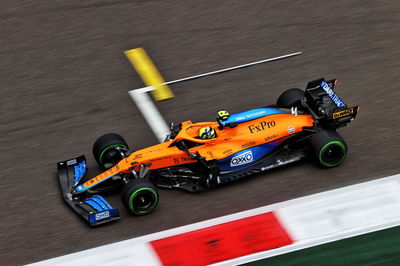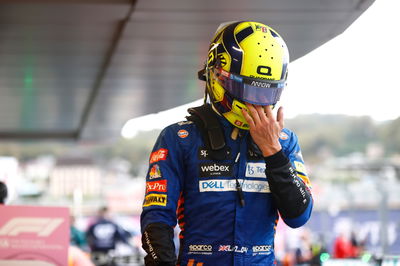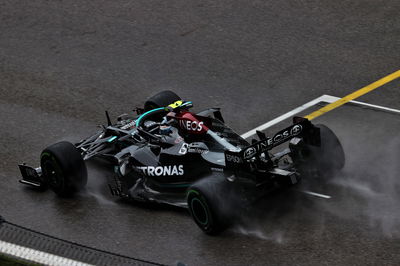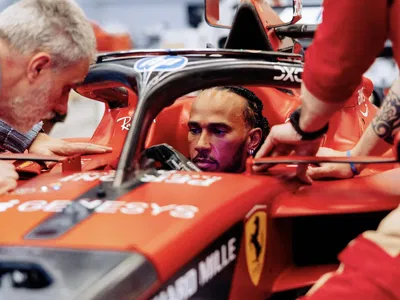McLaren to review why it didn’t overrule Norris in Russian GP

Norris seemed on course to land a stunning first victory having led the majority of Sunday’s race at Sochi but he suffered late heartbreak when a downpour in the final five laps turned the race on its head.
The 21-year-old Briton and McLaren were left to rue a decision to remain out on slicks as conditions worsened, while Mercedes pitted Lewis Hamilton for intermediates.
In the end, Norris stayed out too long and dropped to seventh at the chequered flag when he finally stopped with two laps to go as Hamilton went on to rack up his 100th career victory in a dramatic conclusion to the race.
McLaren team principal Andreas Seidl admitted in hindsight it was the wrong decision.
“In these tricky situations it’s a communication between the driver and the pitwall using all the information we have available in terms of weather forecasts, what other cars are doing, trying to brief Lando and at the same time get the feedback from Lando on how the track conditions are,” Seidl said.
“Lando, with the information you get from us and how he was feeling on the track, felt good staying out there on the slicks, and in the end we didn’t overrule him as a team.
“So that’s something we need to look into to see what we could have done better, because of course in hindsight it was the wrong decision that we made as a team.”

While Norris had repeatedly insisted to race engineer Will Joseph that he wanted to brave it out on slicks, McLaren never ordered him to pit for intermediates, nor did it provide him an update on the weather.
The joint-decision between team and driver ultimately ruined Norris’s race.
“The driver has very limited information,” Seidl explained.“That’s why he can only feed back what he feels on track, which he did.
“But at the same time, if we have firm information that it simply doesn’t make sense to stay out, we always have the possibility to overrule.
“And that’s exactly what we need to analyse as a team, if there would have been any point in this decision process today where we simply should have overruled him because he obviously doesn’t have all the information that we are having.
"If we would have been crystal clear from the team side and convinced that it was 100% the right decision to stop, we would have stopped,” Seidl added.
“In the end it was a close call. Of course it is easy to say afterwards it was the wrong one because that’s how it played out, but I think it was quite close to deciding what was the right thing.
“We need to analyse if there was any information available that should have led us to make a clear call.”












